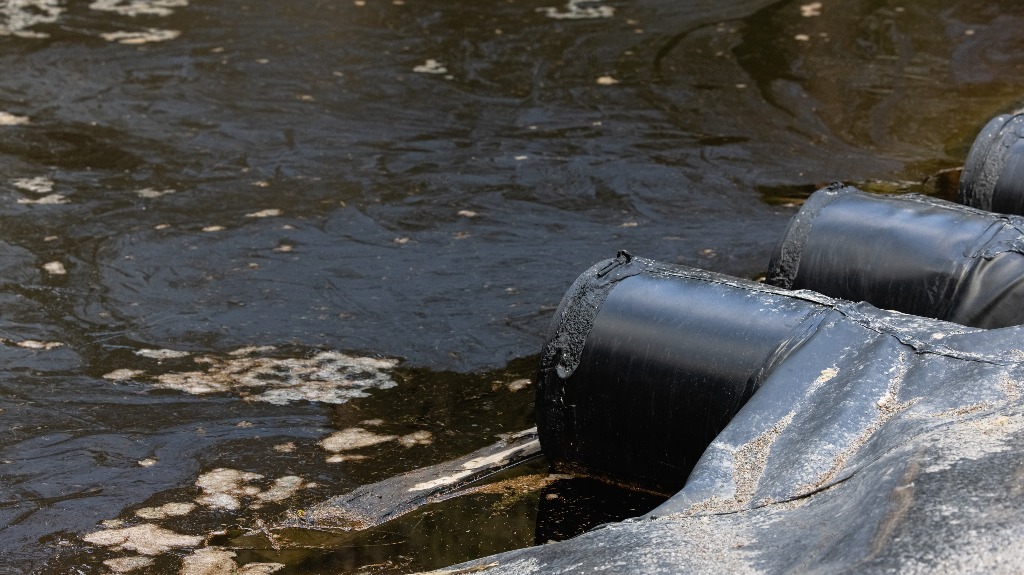
Houston knows storms. But when hurricanes barrel through the Gulf and offshore drilling platforms are damaged or pipelines rupture, the storm doesn’t end with the rain. Oil spills are a silent second wave, one that can devastate ecosystems, cripple local economies, and spark legal battles that last for years.
The Legal Fallout Begins Immediately
The moment oil hits the water, several laws come into play. Chief among them is the Oil Pollution Act of 1990, a federal statute enacted after the Exxon Valdez spill. Under the OPA, the “responsible party,” typically an oil company or pipeline operator, is legally liable for cleanup costs and economic damages.
This includes losses suffered by commercial fishermen, shrimpers, tourism operators, and even property owners. If your livelihood depends on clean water, you may have legal standing to bring a claim. However, asserting your claim isn’t as simple as filing a form. These cases often involve complex documentation, expert testimony, and resistance from corporate defendants.
Environmental Damage Has a Price Tag
Beyond financial losses to individuals and businesses, there’s the damage to the environment. Texas law, in coordination with federal agencies like NOAA, allows for Natural Resource Damage Assessments. These evaluations determine the cost of restoring the coastal marshes, wildlife, and water quality.
Oil companies are supposed to pay for restoration. In theory. In practice, many attempt to limit their liability or dispute the extent of the damage. Having a law firm that understands how NRDA investigations work and how to challenge weak environmental assessments can make a huge difference.
Health Risks Aren’t Always Obvious
It’s not just about fish and finance. After a spill, communities often face increased exposure to toxic chemicals like benzene and polycyclic aromatic hydrocarbons. Children playing on contaminated beaches or families breathing in fumes may develop serious health issues. The law allows personal injury claims, but proving causation is tough. Time matters. Medical testing and documentation need to begin immediately, often before symptoms show.
Can the Government Help?
Yes and no. Agencies like the EPA and Coast Guard oversee cleanup and may impose fines or sanctions. But they don’t handle individual claims for damages. That’s up to you. And while Texas has a well-established oil and gas legal framework, it leans heavily on industry. You need an advocate who knows how to navigate both state and federal jurisdictions.
Under the OPA, most claims must be filed within three years from the date the damage was discovered. But before you can pursue compensation through the government, you must first present your claim to the responsible party and give them 90 days to respond. This “presentment” requirement makes timing even more critical. If you wait too long, you may lose both your private and federal recovery options.

Holding Polluters Accountable Without Getting Buried in Paperwork
At Parks Law PLLC, we help coastal families, small business owners, and workers who’ve been affected by oil spills take meaningful legal action. We don’t just file claims. We investigate, build strong legal narratives, and go up against insurers and corporate legal teams trained to deny, delay, or underpay.
Our team understands Houston’s coastal economy. We know what a dead fishing season or toxic sediment does to a community. And we know how to turn legal pressure into real results.
After the Spill, You Still Have Power
The oil industry may be powerful, but so is the law when it’s used strategically and backed by experience. If your family, business, or health has been affected by an oil spill after a storm, you don’t have to face it alone. The damage may be invisible to the eye, but it leaves a legal trail. We’re here to help you follow it and fight back.
Contact Parks Law PLLC today for a free consultation. Let us help you recover, rebuild, and hold the right parties accountable.
